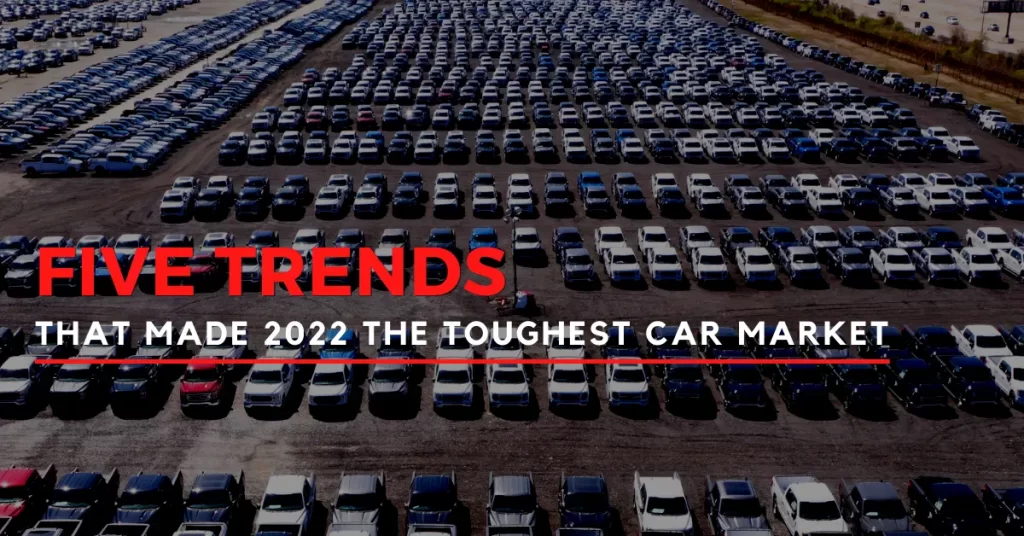If you had to buy a brand new or used automotive this year, you most likely had a stage of frustration and sticker shock. In 2022, some of the most significant obstacles faced by the international Car Market included high-interest rates, issues with supply chains, and fears of economic contraction. It is not anticipated that these problems will be remedied anytime soon.
Here are the few main points that made the car market in 2022 the worst we’ve seen.
Table of Contents
ToggleSupply chain Issues
Automakers are dependent upon a worldwide supply chain of raw elements. The biggest problem was that automakers couldn’t get enough semiconductors (also called “microchips”) to finish making cars. Modern cars are complicated and use a lot of computing power to run their many systems. You can’t make a car without these chips.
This led to a situation in which some manufacturers either slowed down production or, in some cases, shut down factories until they had enough parts to make cars. When factories can’t make enough cars, the local vendor lots look like ghost towns. When looking for their favorite model, shoppers often find listings that say the vehicle was available, only to find out later that most of these items had already been sold.

Increases in Price All-Around
Regarding limited-run sports cars or a hot new model like the Bronco, dealer markups over the MSRP are standard. But people who wanted “normal” cars like Honda Civics and Toyota RAV4s found it rare to get a deal at “MSRP” and often had to pay more. According to data from Edmunds, 82% of people who bought a new car paid more than the price on the window sticker.
It was more than just well-known cars that had their prices raised. Even cheap cars like Nissan Versas had price increases of up to 30 percent over the MSRP. Automakers are noticing buyers prefer certain brands less when they have to pay more, so they go elsewhere. But the manufacturers only want to do something to fix the problem other than sending some internal memos to dealerships.

Failure to Provide options
When the cars were finally made, some manufacturers had to leave out options because they couldn’t get the parts. Once upon a time, if you wanted a BMW with a heads-up display or a better sound system, you were still looking for a way to get through. Mazda is still making higher-end cars that don’t have a power rear tailgate. So not only were people paying more, but they were also getting fewer options.

Delays in Delivery in Car Market
If you placed an order for a vehicle, there is a good chance that you did not receive it when you believed you would. There needed to be a backlog of orders at dealerships and car manufacturers. We had several clients who had been informed the order would take between four and six months, but they had to wait a year or earlier before they could finally acquire their automobile. These customers felt that waiting for an extended period was worthwhile to avoid paying market premiums; however, many customers need more lead time and want something right now. That generally entailed navigating the minefield that is the market for old automobiles.

Used-Car Prices Hit All-Time Highs
With the number of new cars on the market cut down, people who wanted to buy something away often had to turn to the used car market. Buyers found that lightly used popular models were selling for almost the same as when they were first released and that people who bought at the low end of the market saw substantial price jumps. There have been some areas where you could get a good deal on a used automobile, but you usually had to spend a lot of money on a depreciated luxury car or a cool five-door fastback.





 and Canada
and Canada 




